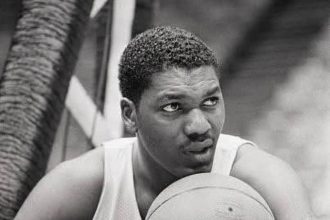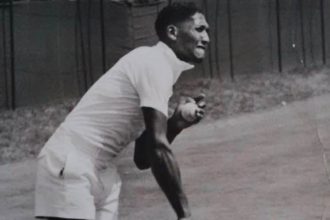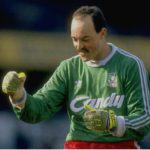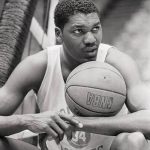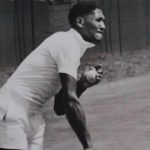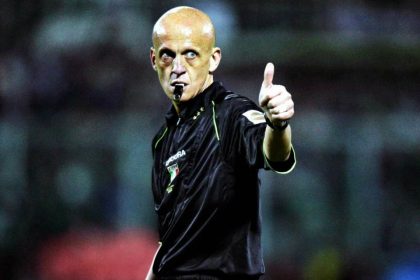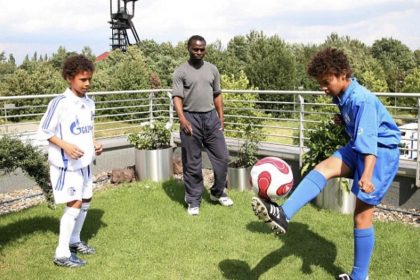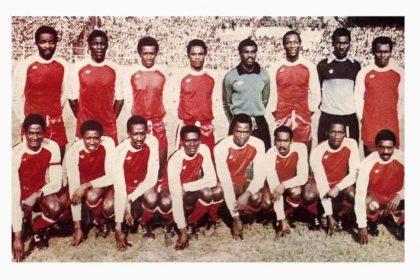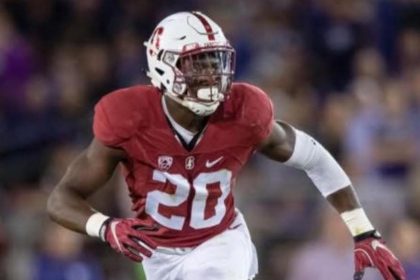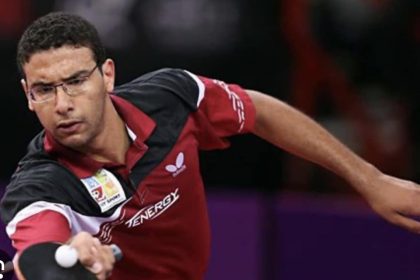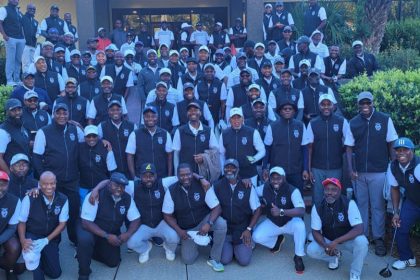In the streets of Kaduna in northern Nigeria, a wiry teenager with burning ambition and blistering pace was turning heads in the very late 70s. His name: Rashidi Yekini.
Born on October 23, 1963, into a humble family, Rashidi Yekini’s early life was a tale of grit, struggle, and dreams built on hope. What he lacked in formal education and privileges, he made up for with raw talent, relentless drive, and an almost spiritual obsession with football.
Before making headlines as Nigeria’s greatest goal scorer, Yekini was a welder and mechanic—a survivalist in the chaotic underbelly of Nigeria’s urban hustle. But football was always calling. He began his footballing journey with UNTL FC (United Nigerian Textiles Limited) in Kaduna, a local club that gave many young players their first taste of organized football. His towering height (6’3″) and power made him stand out among his peers. Coaches saw in him a rare gem—raw but destined for greatness.
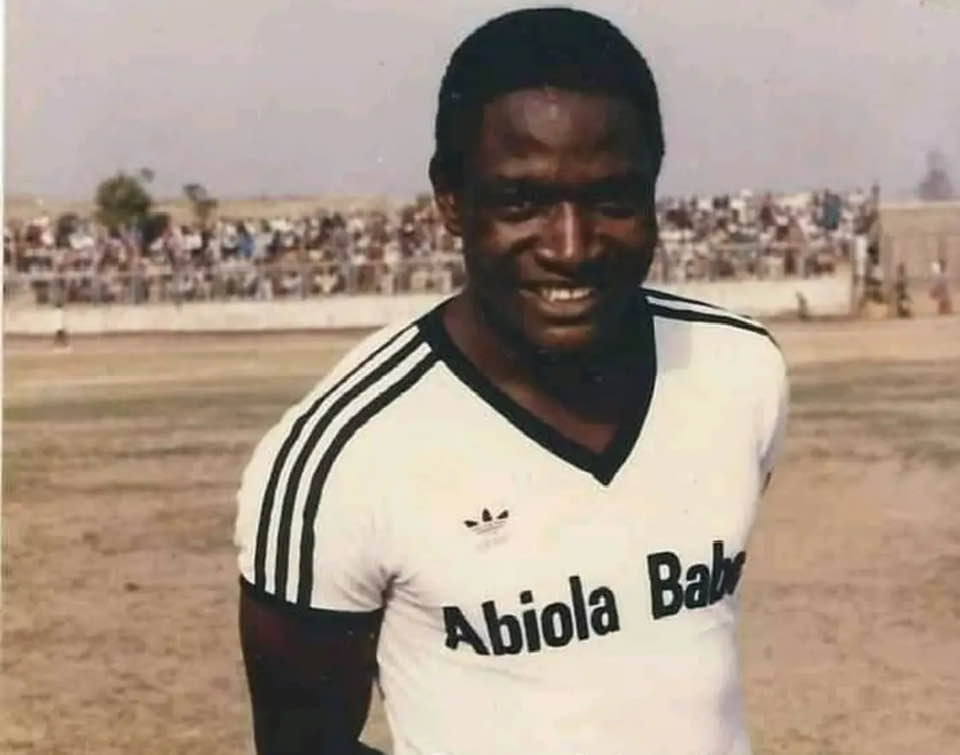
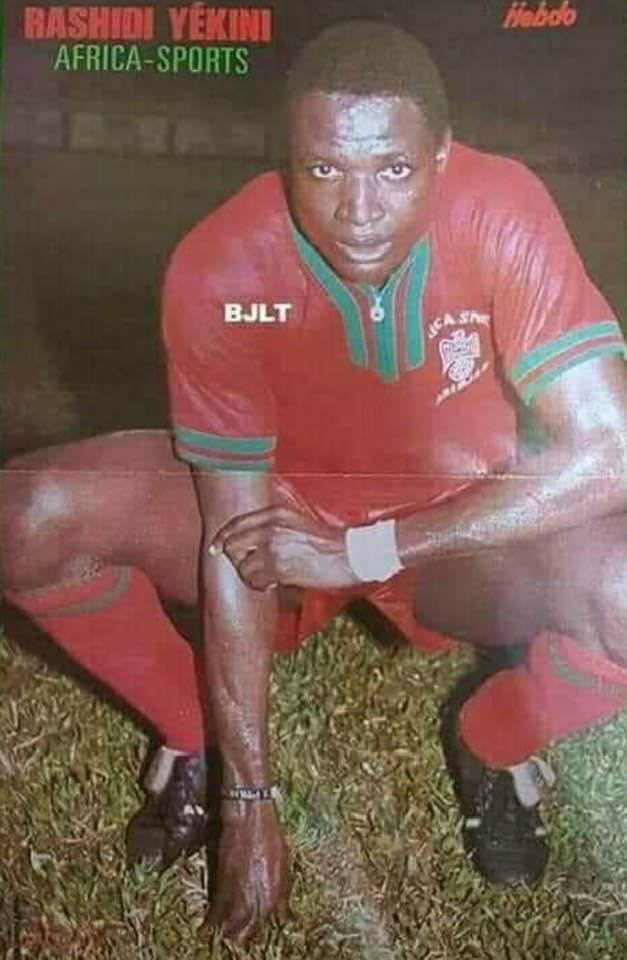
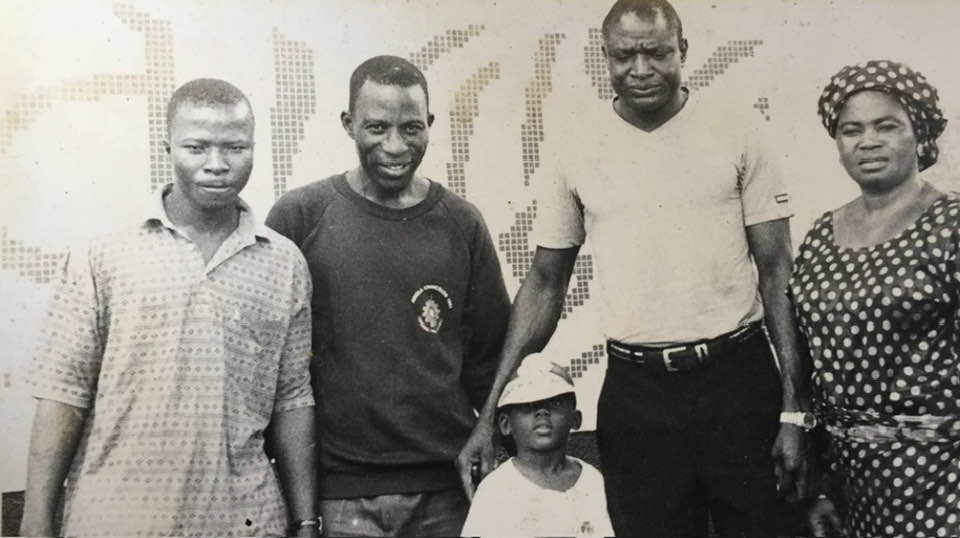
Rashidi Yekini’s local career took shape when he joined Shooting Stars SC (3SC) of Ibadan in 1982, where he quickly gained fame as a lethal striker even though he met there more established players like the iconic Segun Odegbami and Felix Owolabi both first team members of the Nigerian 1980 AFCON-winning generation. In 1984, he moved to Abiola Babes, a team bankrolled by wealthy publisher and politician Moshood Abiola. It was at Abiola Babes that Yekini won his first major title, the Nigerian FA Cup in 1985, showing glimpses of the predator that would later terrorize international defenses.
With his reputation growing beyond Nigeria, Yekini took a leap abroad in 1987, signing with Africa Sports d’Abidjan in Ivory Coast. Here, he became a household name across West Africa. In two seasons, he scored prolifically and won the Ivorian league title, which paved the way for a move to Europe.
In 1990, Yekini moved to Portugal, signing for Vitória de Setúbal—a second division club at the time. In his debut season, he led them to promotion. What followed was nothing short of remarkable. In the 1993–94 season, Yekini scored 21 goals to become the Primeira Liga’s top scorer, earning the prestigious Portuguese Golden Boot. His dominance and humility endeared him to fans.
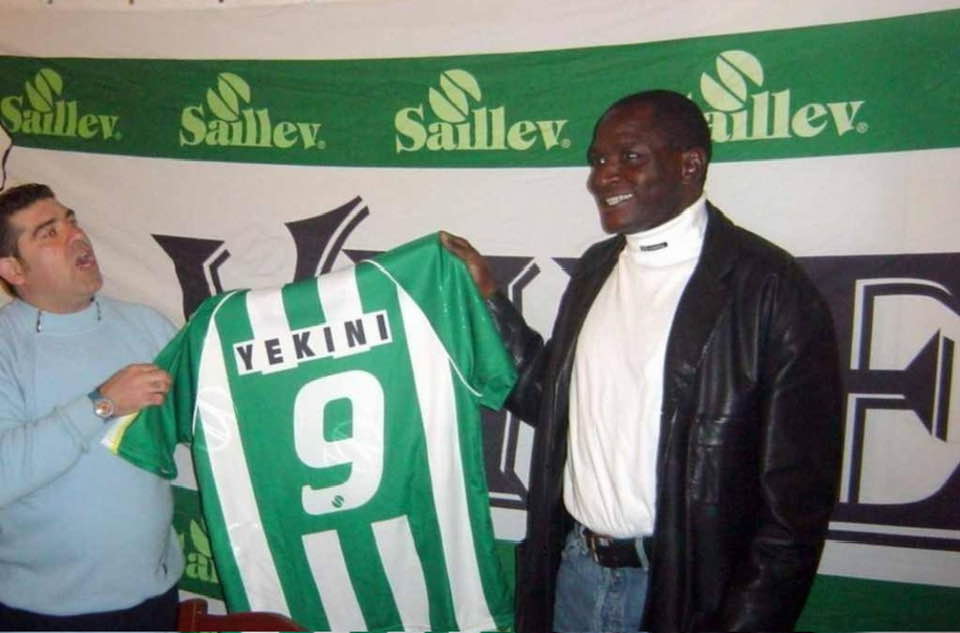
His goal celebrations, often marked by kneeling and pointing to the skies, symbolized a man whose success was driven by faith and resilience.
Rashidi Yekini’s exploits did not go unnoticed back home. He had already made his debut for Nigeria in 1984 and helped the Super Eagles to runners-up in the 1988 African Cup of Nations (AFCON).
His progression in front of goals at the international level was astonishingly arithmetic. He scored one goal at this Morocco 1988 AFCON against Kenya at the group stage and he netted the only goal Nigeria scored at the football event of the summer Olympics in Seoul later in the same year.
3 goals at 1990 AFCON in Algeria and he was already on top of the pyramid of goal scoring in Africa by being the highest scorer of the AFCON 1992 in Senegal with 4 goals. It was a back-to-back golden boot award as he repeated the same exploit again with 5 goals in Tunisia 1994 AFCON, totalling 13 AFCON goals altogether.
His 8 goals in USA 1994 World Cup qualifying series in the CAF zone was the highest in the continent and these goals directly took Nigeria to its maiden World Cup appearance and made him to emerge as the first winner of the CAF African footballer of the year award of 1993 and the first Nigerian to be so honoured.
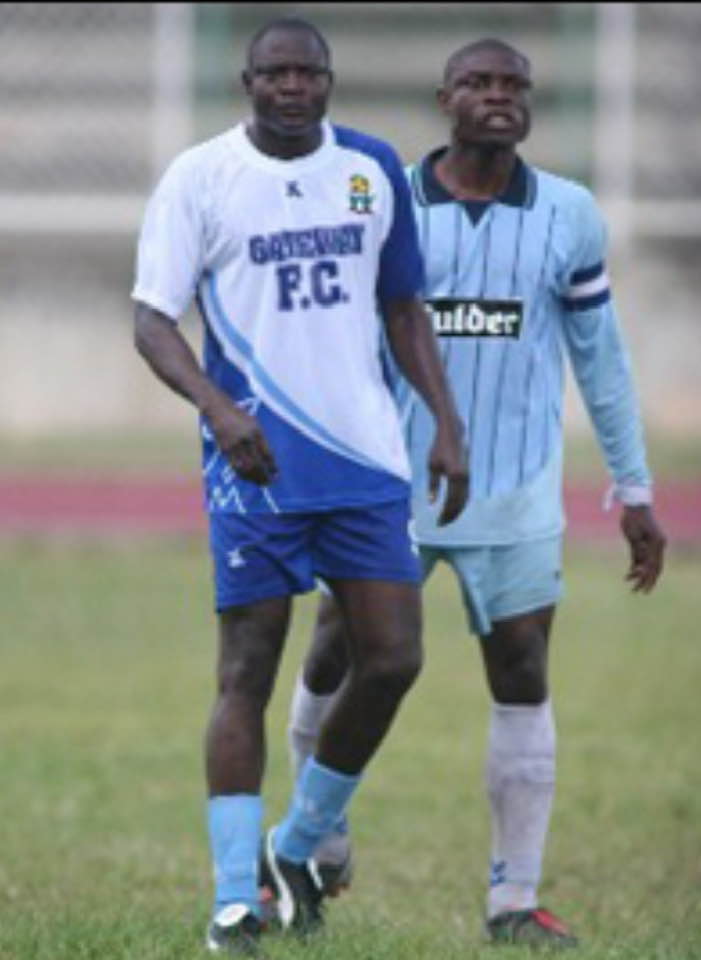
His golden moment came in 1994. That year, he led Nigeria to win its second AFCON title, emerging as the tournament’s top scorer and Most Valuable Player.
On June 21, 1994, Rashidi Yekini scored Nigeria’s first-ever World Cup goal against Bulgaria. His celebration—clutching the net and screaming in joy—remains one of the most iconic moments in World Cup history.
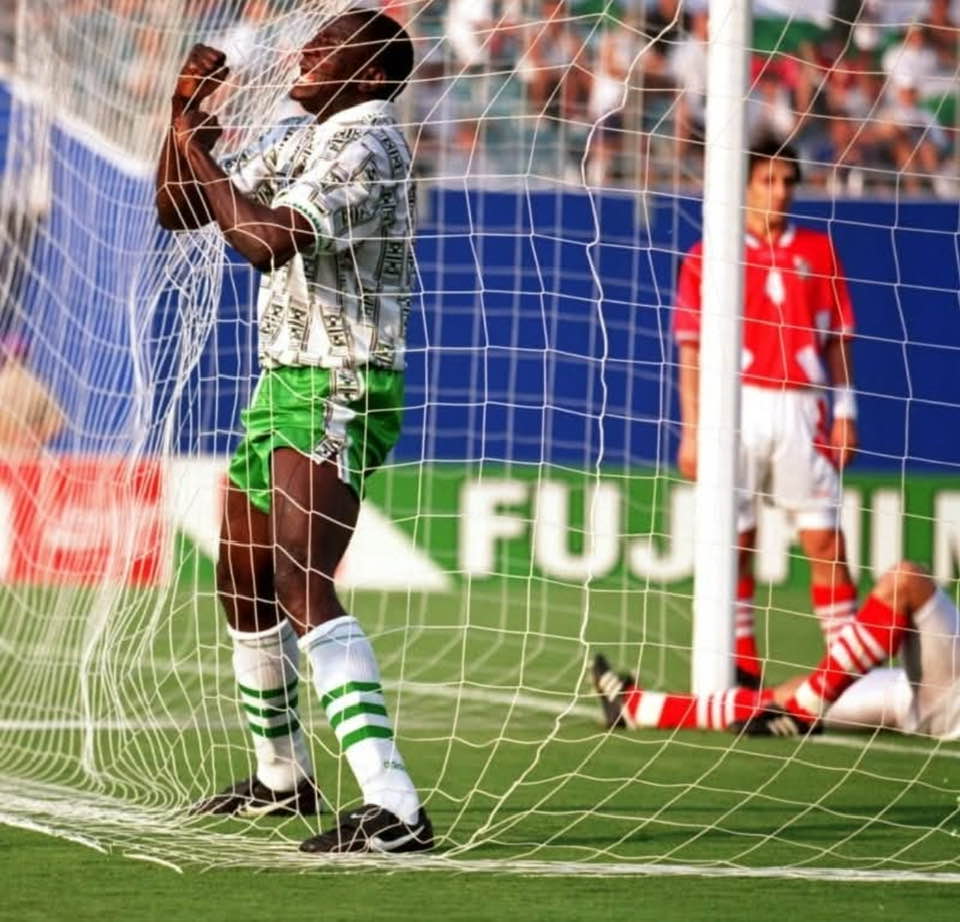
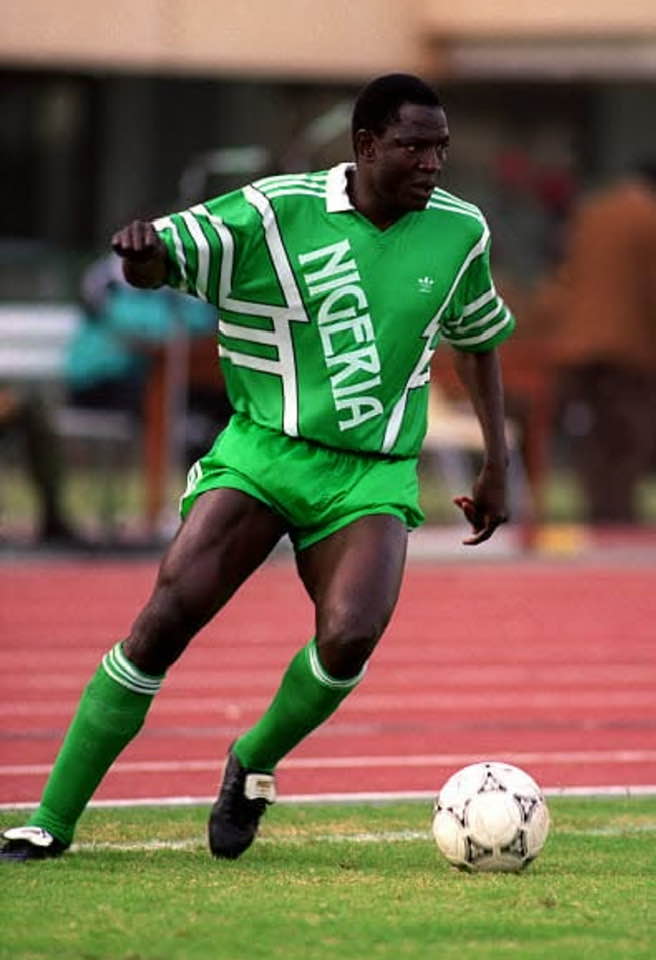
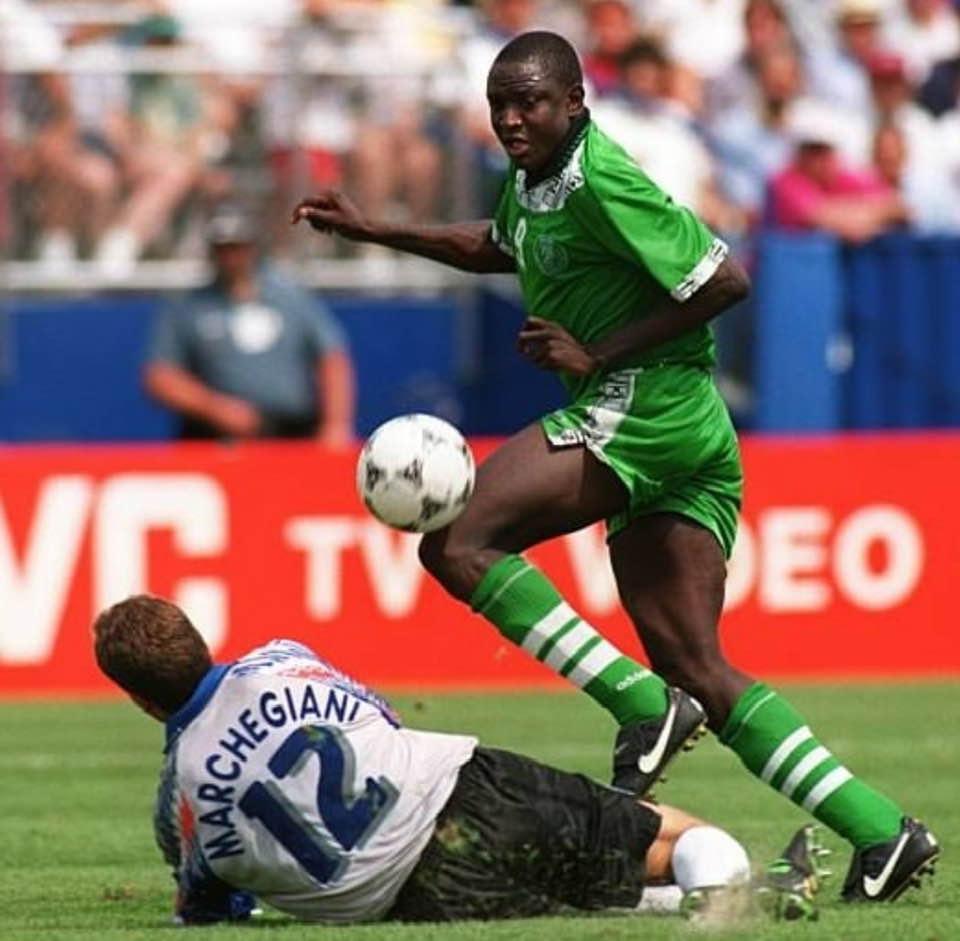
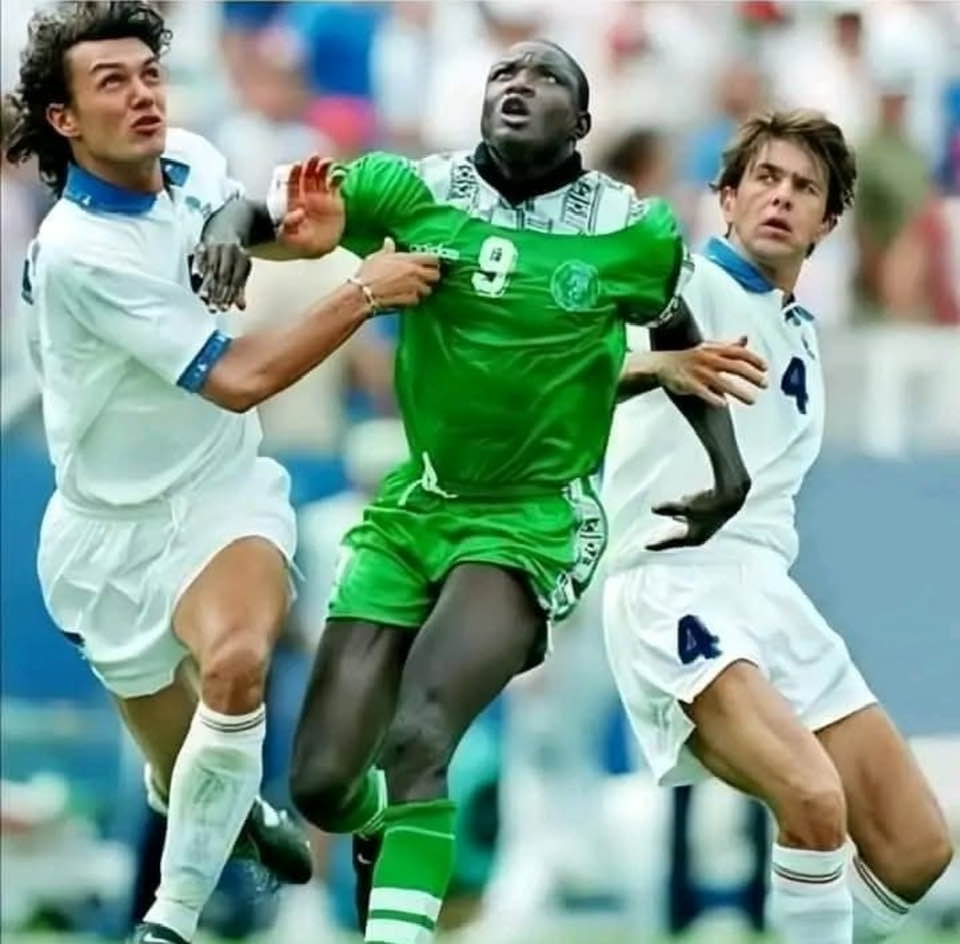
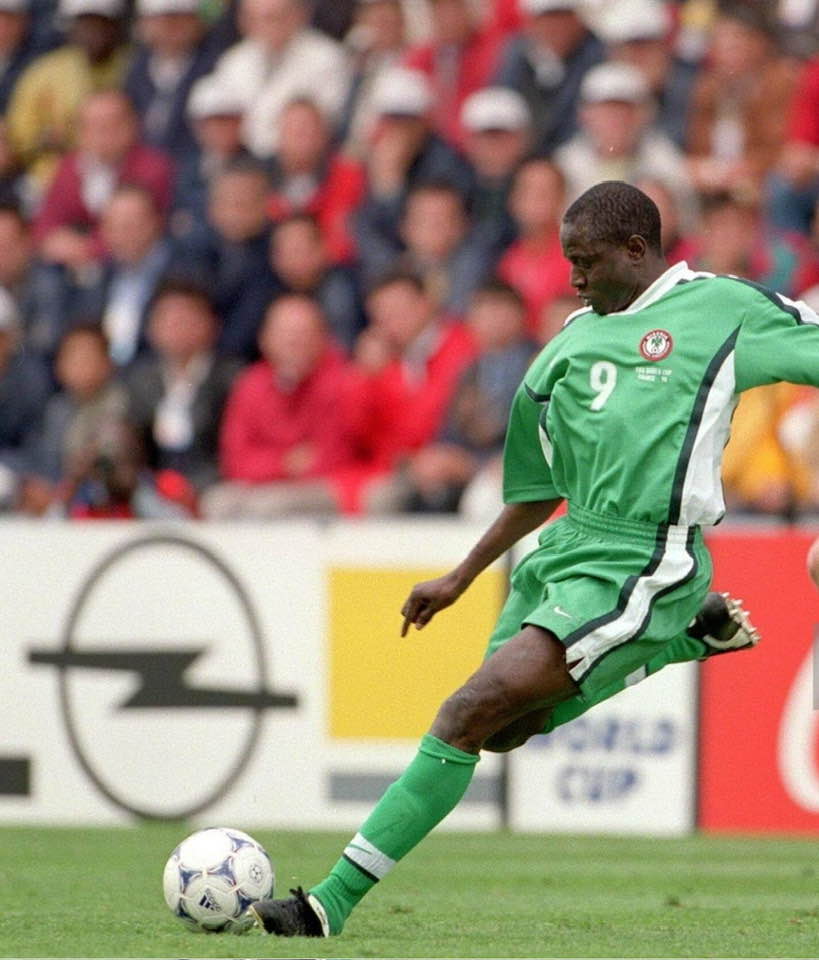
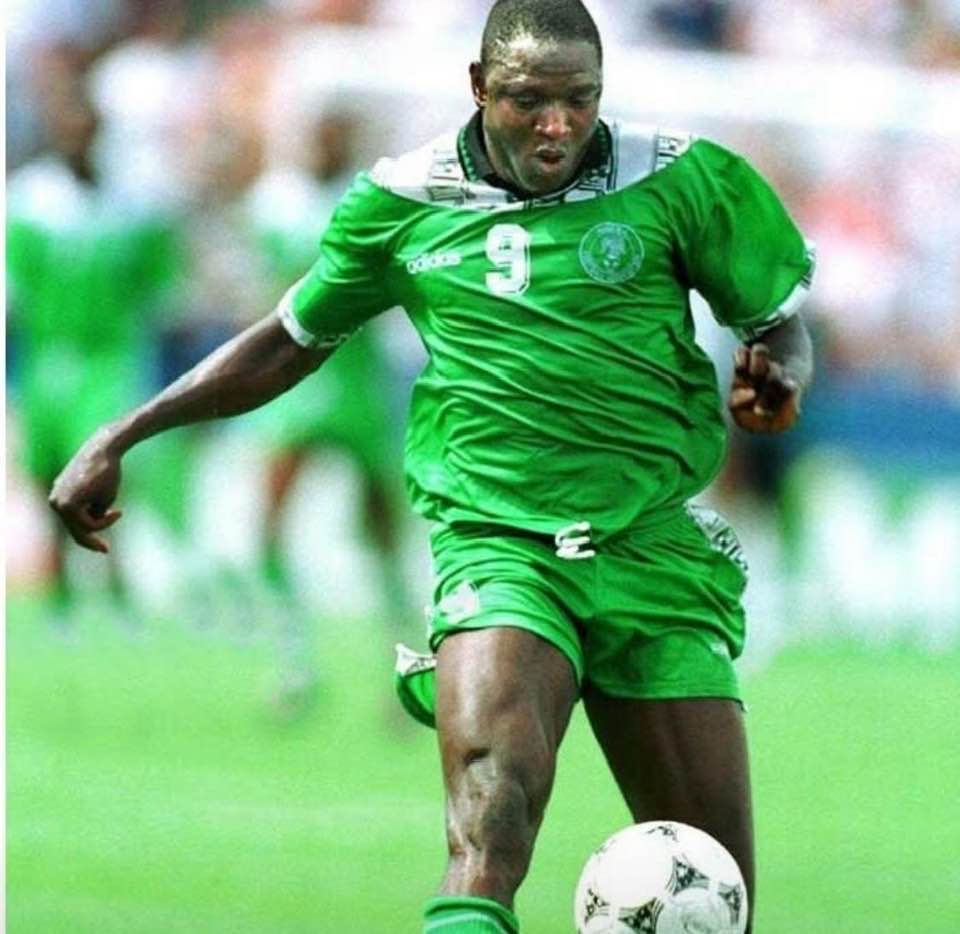
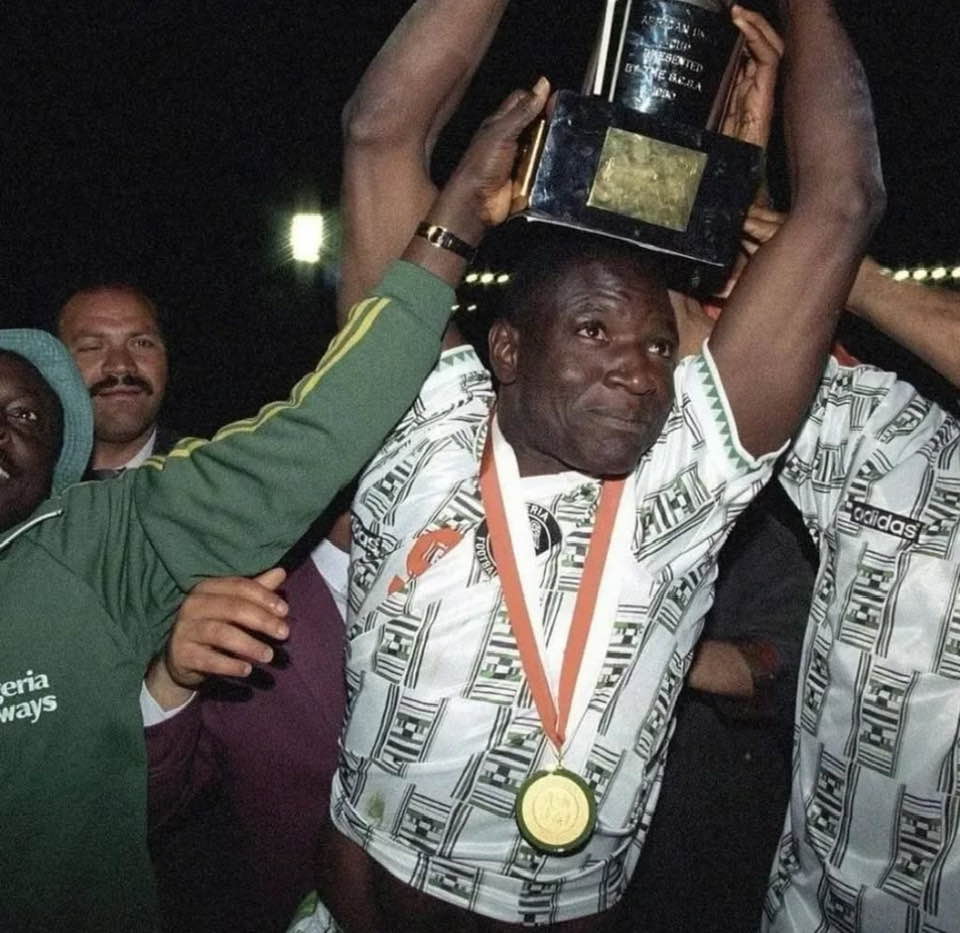
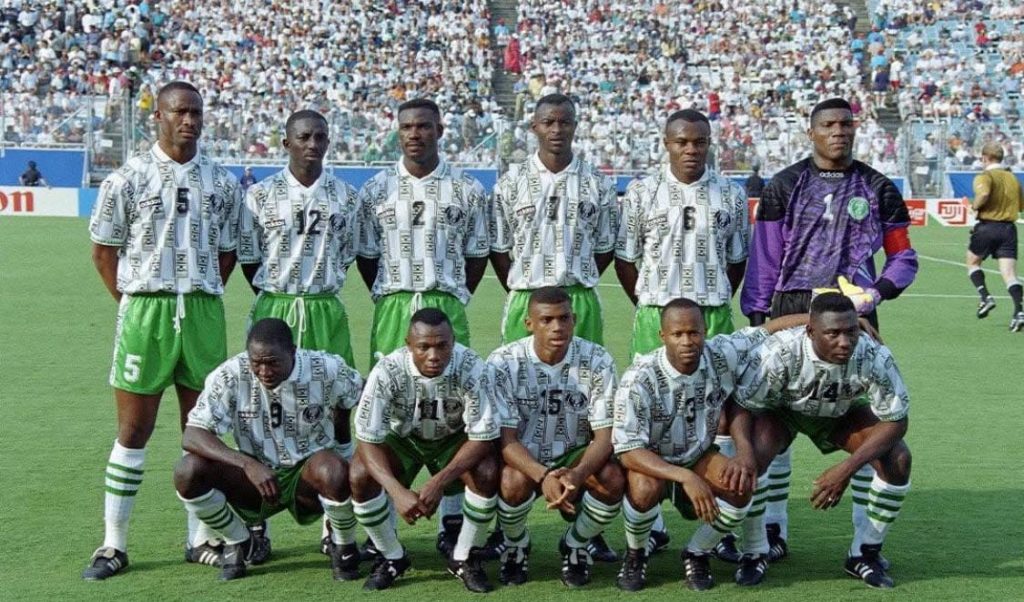
“That image of Yekini holding the net and crying out—it was like all of Africa was crying with joy,” said Roger Milla, Cameroon’s World Cup icon.
Yekini’s place as the goal king of Nigerian football is certainly not in debate within any group and he was clearly the most feared number 9 in the whole of Africa in the early 90s.
After Portugal, Rashidi Yekini had stints in Olympiacos (Greece), Sporting Gijón (Spain), and Zurich (Switzerland), but he struggled to replicate his earlier brilliance. Injuries and inconsistent playing time slowed him down. He returned to Africa and played for clubs in Tunisia, Saudi Arabia, and even tried to resurrect his career at Gateway FC of Abeokuta, Nigeria.
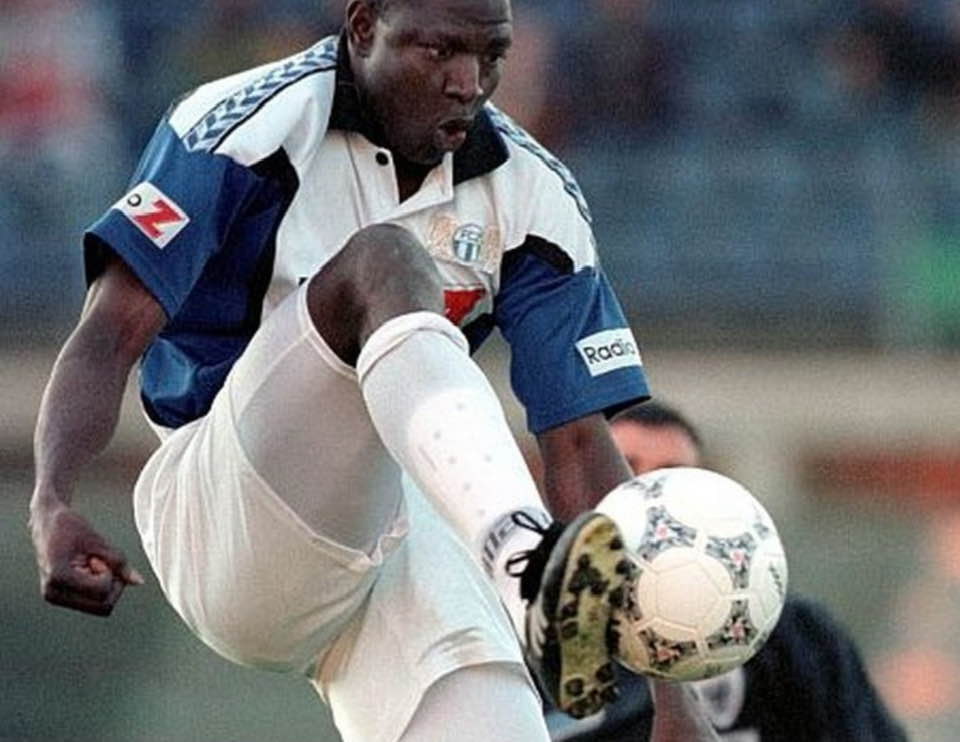
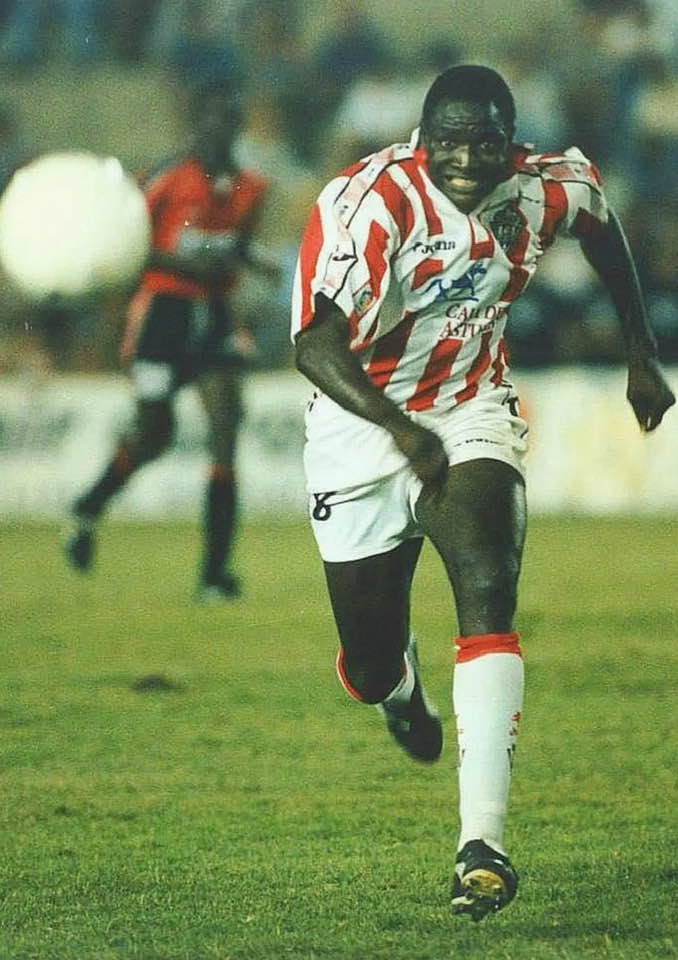
Yekini’s numbers for Nigeria are staggering: 37 goals in 58 matches—a strike rate (0.64 goals per game) that eclipses many international stars. For comparison:
- Thierry Henry (France) – 51 goals in 123 caps (0.41 goals/game)
- Zlatan Ibrahimović (Sweden) – 62 goals in 122 caps (0.51 goals/game)
- Samuel Eto’o (Cameroon) – 56 goals in 118 caps (0.47 goals/game)
Despite playing fewer games than most of these stars, Yekini’s goal-per-game ratio ranks among the highest in international football, confirming his status as one of the deadliest finishers of his generation.
By the late 1990s, his national team role diminished. He had earned 58 caps for Nigeria and scored a record 37 international goals—a record that remains unbeaten. He played his final match for Nigeria in 1998.
In the final years of his career, isolation and mystery set in for him. Yekini lived a reclusive life in Ibadan, shunning fame and the football community.
Reports of mental health challenges began to surface. Rumors abounded—that he had become erratic, refused help, or was deeply depressed. Some claimed he was under spiritual attack or suffering from bipolar disorder. His family reportedly took him for “spiritual cleansing”, which some say involved forceful detention against his will.
Tragically, on May 4, 2012, Rashidi Yekini died under mysterious circumstances at the age of 48. His death certificate stated he died of “an undisclosed illness.” The football community mourned, and tributes poured in.
“We failed Yekini,” said former teammate Sunday Oliseh. “He gave everything for Nigeria and deserved better in life and in death.”
Legacy of a Legend
Rashidi Yekini’s story is a tapestry of triumph and tragedy—a man who rose from poverty to global stardom, yet died in relative obscurity. In 2013, the Nigerian Football Federation (NFF) renamed the Goal of the Season award in his honor. In 2018, Nigeria’s government pledged to look into his family’s welfare and immortalize him in national memory.
Rashidi Yekini remains Nigeria’s greatest striker—an enduring symbol of what is possible with talent, determination, and courage. His story is a stark reminder of the fact that sportsmen need to plan better for life after sports and inevitable retirement.
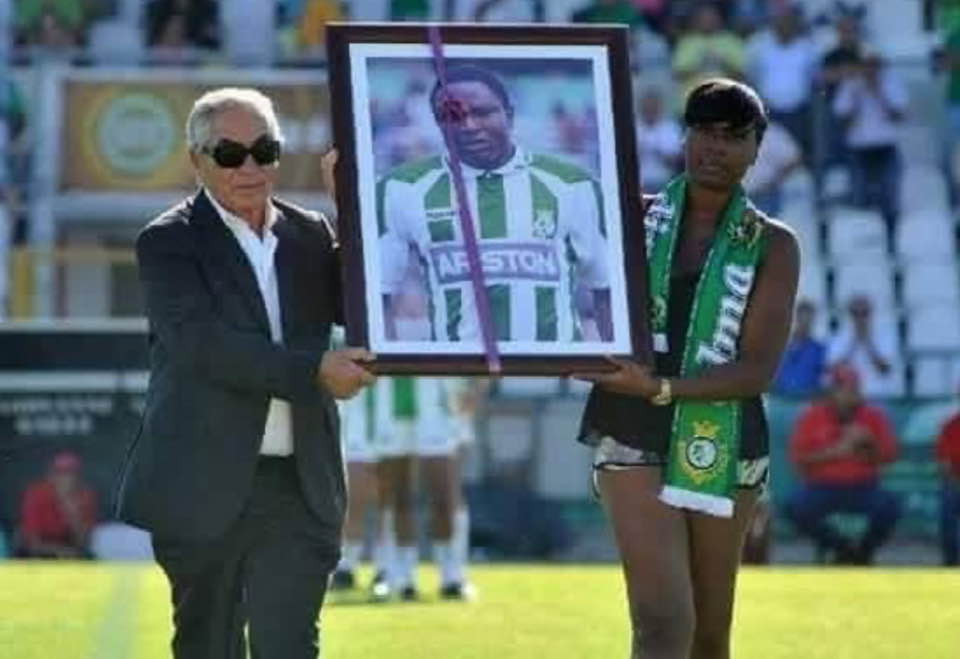
References:
- BBC Sport Africa – “Nigeria mourns legendary striker Rashidi Yekini”, 2012.
- The Guardian Nigeria – “Remembering Rashidi Yekini, Nigeria’s goal machine”, 2020.
- FIFA.com – “1994 World Cup: Rashidi Yekini and the net-hug heard round the world”, archived article.
- CAF Online – “Top scorers in AFCON history”, 2021.
- Vanguard Nigeria – “Rashidi Yekini was crying for help before he died”, 2012.
- ESPN Africa – “Yekini’s legacy lives on”, 2021.
Please follow this link to subscribe to Moor Sportz’s YouTube channel https://youtube.com/@moorsportz?si=T1m7lCp5b98I_2SO
You can also find us easily on the Twitter and Instagram as our coloured brand logo is unmistakable in the search engines
Please note we don’t have the copyright ownership of the photos here.
Story edited by Kehinde Fagbuaro


